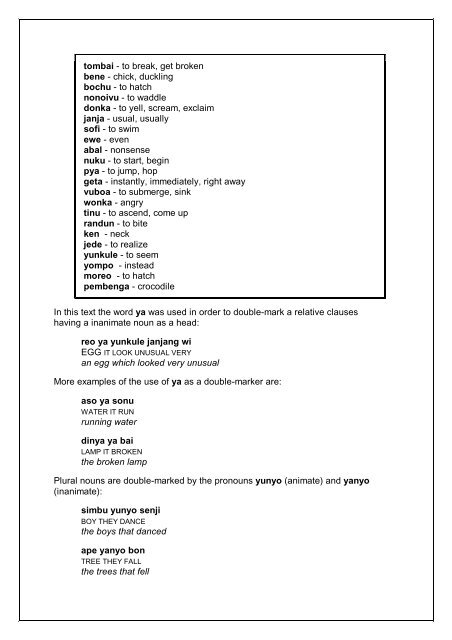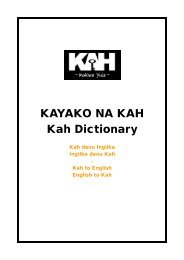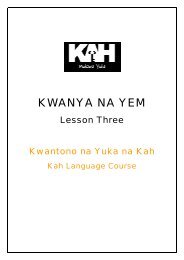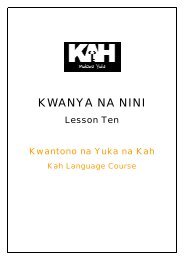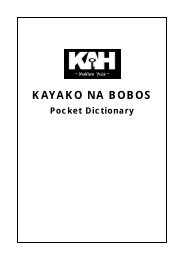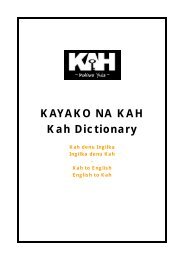You also want an ePaper? Increase the reach of your titles
YUMPU automatically turns print PDFs into web optimized ePapers that Google loves.
tombai - to break, get broken<br />
bene - chick, duckling<br />
bochu - to hatch<br />
nonoivu - to waddle<br />
donka - to yell, scream, exclaim<br />
janja - usual, usually<br />
sofi - to swim<br />
ewe - even<br />
abal - nonsense<br />
nuku - to start, begin<br />
pya - to jump, hop<br />
geta - instantly, immediately, right away<br />
vuboa - to submerge, sink<br />
wonka - angry<br />
tinu - to ascend, come up<br />
randun - to bite<br />
ken - neck<br />
jede - to realize<br />
yunkule - to seem<br />
yompo - instead<br />
moreo - to hatch<br />
pembenga - crocodile<br />
In this text the word ya was used in order to double-mark a relative clauses<br />
having a inanimate noun as a head:<br />
reo ya yunkule janjang wi<br />
EGG IT LOOK UNUSUAL VERY<br />
an egg which looked very unusual<br />
More examples of the use of ya as a double-marker are:<br />
aso ya sonu<br />
WATER IT RUN<br />
running water<br />
dinya ya bai<br />
LAMP IT BROKEN<br />
the broken lamp<br />
Plural nouns are double-marked by the pronouns yunyo (animate) and yanyo<br />
(inanimate):<br />
simbu yunyo senji<br />
BOY THEY DANCE<br />
the boys that danced<br />
ape yanyo bon<br />
TREE THEY FALL<br />
the trees that fell


